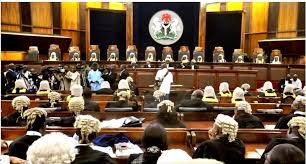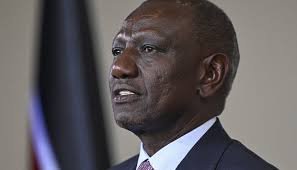In a twist of fate, President Bola Tinubu’s prescient article published on January 11, 2012, lambasting former President Goodluck Jonathan has resurfaced on the internet.
Titled, “Removal of Oil Subsidy: President Jonathan Breaks Social Contract With the People,” Tinubu forewarned against the current economic crisis if petroleum removal subsidies were not reversed.
Tinubu’s analysis in the article challenges us to reconsider the decisions made in the past and their impact on the present. His description of the 2012 subsidy removal as the “Jonathan tax” strikes a chord, highlighting the enduring relevance of his words.
As we grapple with the repercussions of subsidy removal, Tinubu’s article serves as a timely reminder of the importance of accountability in governance.
I encourage everyone to read it. In the article, Tinubu ridiculed the 2012 removal of petrol subsidies. The following paragraphs are particularly noteworthy for the precision of their prescience.
“Government claims the subsidy removal will create jobs…. The stronger truth is that it will destroy more jobs than it creates. For every job it creates in the capital intensive petroleum sector, it will terminate several jobs in the rest of the labour intensive economy.
“Subsidy removal will increase costs across the board. However, salaries will not increase. This means demand for goods will lessen as will sales volumes and overall economic activity. The removal will have a recessionary impact on the economy as a whole. While some will benefit from the removal, most will experience setbacks.
“What is doubtless is that the Jonathan tax will increase the price of petrol, transportation and most consumer items. With fuel prices increasing twofold or more, transportation costs will roughly double. Prices of food staples will increase between 25-50 percent….
“Most people’s incomes are low and stagnant. They have no way to augment revenue and little room to lower expenses for they know no luxuries; they are already tapped out. The only alternative they have is to fend as best they can, knowing they must somehow again subtract something from their already bare existence.
“There will be less food, less medicine, and less school across the land. More children will cry in hunger and more parents will cry at their children’s despair…. Poor and middle class consumers will spend the same amount to buy much less. The volume of economic activity will drop like a stone tossed from a high building. This means real levels of demand will sink.
“The middle class to which our small businessmen belong will find their profit margins squeezed because they will face higher costs and reduced sales volumes. These small firms employ vast numbers of Nigerians. They will be hard pressed to maintain current employment levels given the higher costs and lower revenues they will face.
“Because the middle class businessman will be pinched, those who depend on the businessmen for employment will be heavily pressed. States that earn significant revenue from internally generated funds will find their positions damaged. Internally generated revenue will decline because of the pressure on general economic activity. The Jonathan tax will push Nigeria toward an inflation-recession combination punch worse than the one that has Europe reeling.
“This tax has doomed Nigeria to extra hardship for years to come while the promised benefits of deregulation will never be substantially realised. People will starve and families crumble while federal officials praise themselves for ‘saving money.’ The purported savings amount to nothing more than an accounting entry on the government ledger board. They bear no indication of the real state of the economy or of the great harm done to the people by this miserly step.”
In a familiar tone echoing sentiments I’ve long expressed, Tinubu recently criticised “European conservatives” for advocating economic policies that neglect the needs of Nigerians.
He astutely observed that no nation has prospered by adhering to ultra-free market ideas, pointing to Nigeria’s entanglement with these policies due to a trifecta of factors: Nigerian elite self-interest, deference to institutions like the IMF/World Bank, and a disregard for ordinary citizens.
Tinubu’s critique extends to the removal of petrol subsidies in 2023, which, rather than benefiting the masses, merely diverted funds from the subsidy to politicians. This manoeuvre inflated government allocations by 29.05% within six months, underscoring a system where politicians profit while ordinary Nigerians bear the brunt.
State governors now exacerbate currency depreciation by converting surplus naira into dollars. Consequently, the economy suffers, with small businesses and the informal sector bearing the greatest burden.
Despite claims that subsidy removal would stimulate economic growth, the reality has been starkly different. The transportation sector, a vital indicator of economic health, contracted significantly following the subsidy withdrawal, plunging into recession.
Tinubu, while aware of these consequences, appears more inclined to appease international institutions like the IMF and World Bank than prioritise the welfare of Nigerians. This deference was evident in the government’s swift response to IMF directives, such as the removal of electricity subsidies, further amplifying the populace’s economic woes.
In essence, Nigeria finds itself governed not by its elected officials but by the dictates of international financial bodies. Unless this paradigm shifts, Nigerians are poised for continued hardship, underscoring the need for leadership that prioritises the nation’s interests over external validation.

























